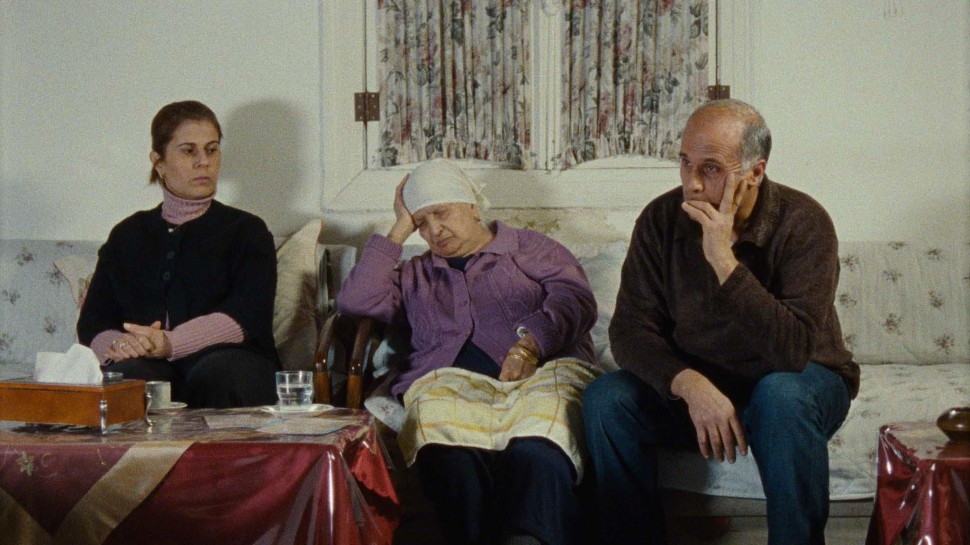
Port of Memory
The Roof
Screening on Film
$12 Special Event Tickets
The haunting films of Kamal Aljafari (b. 1972) mix documentary, fiction and personal memoir to render complex portraits of the Palestinian communities in Ramleh and Jaffa, now part of Israel. While providing a rare look at the everyday lives of Palestinian Israelis, the films are more than simply sociopolitical treatises of often-overlooked communities and neighborhoods in danger of dissolving. Aljafari instead astutely balances fiction and nonfiction to capture the fragile rhythms of lives lived in a kind of permanent displacement and the strange limbo of neighborhoods subtly yet inexorably transforming. Although the Ramleh and Jaffa depicted in Aljafari’s films have managed to avoid the raw hardships of life in the occupied territories, they cannot avoid the paradoxes of the occupation itself, filed as they are with lives and buildings frozen in time even as they are part of the Israeli present. Pointedly political, Aljafari’s films wonderfully embed their ideology into a cinematic poetry graced by light humor.
Aljafari has established an international reputation not only with his films but also with gallery shows exhibited around the world. A graduate of the Academy of Media Arts in Cologne, this year he has been based at Harvard as a Film Study Center-Radcliffe Fellow. He has an installation opening on April 28th at the Radcliffe Gallery entitled “Not Without Me.”
The haunting films of Kamal Aljafari (b. 1972) mix documentary, fiction and personal memoir to render complex portraits of the Palestinian communities in Ramleh and Jaffa, now part of Israel. While providing a rare look at the everyday lives of Palestinian Israelis, the films are more than simply sociopolitical treatises of often-overlooked communities and neighborhoods in danger of dissolving. Aljafari instead astutely balances fiction and nonfiction to capture the fragile rhythms of lives lived in a kind of permanent displacement and the strange limbo of neighborhoods subtly yet inexorably transforming. Although the Ramleh and Jaffa depicted in Aljafari’s films have managed to avoid the raw hardships of life in the occupied territories, they cannot avoid the paradoxes of the occupation itself, filed as they are with lives and buildings frozen in time even as they are part of the Israeli present. Pointedly political, Aljafari’s films wonderfully embed their ideology into a cinematic poetry graced by light humor.
The history of the town of Jaffa, a thriving port city now part of Tel Aviv, provides the background for Aljafari’s most recent film, centering on his mother’s family at risk of eviction if they can’t find proof that the house they have lived in for decades belongs to them. Their predicament is rendered with Aljafari’s usual subtlety, as well as deadpan humor and dark wit. This skeletal narrative provides the scaffolding for a portrait of life in what was once a bustling neighborhood that was nearly emptied by fighting during the establishment of the state of Israel, and then suffered decades of official neglect. In the meantime, Jaffa was often used as a location for action adventure movies featuring the likes of Chuck Norris. While these films used the city as a generically exotic location, they have now become, in a neat bit of irony, the source of documentary images of the city as it was.
This deceptively quiet film presents a portrait of Aljafari’s family in Ramleh and Jaffa that hovers between documentary and cinematic memoir, guided by a nimble camera moving calmly but ceaselessly around the rooms of homes inhabited, damaged and ruined. The title refers to the roof missing from the house where Aljafari’s family resettled in 1948, a home unfinished, an incomplete construction project. The use of stillness and off-screen space creates a sense of suspension, of time spent waiting, of aftermath, of lives lived elsewhere. Aljafari’s striking use of his “cast,” his family, reveals the influence of Bresson’s use of nonprofessional actors as models whose performances emanate from their presence, not from acting.










